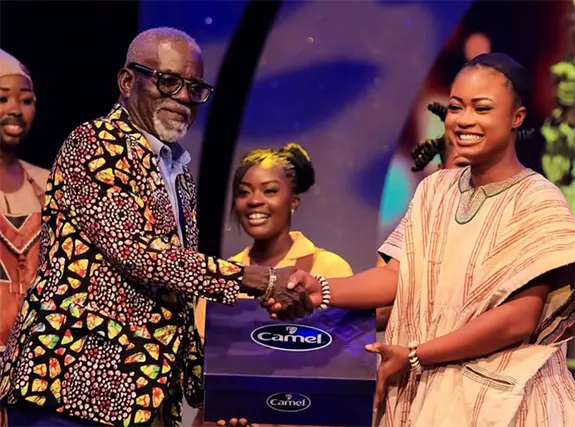Ghana’s Most Beautiful (GMB), a popular reality show aired on TV3, has recently become the center of a growing online debate concerning the allocated performance time for its contestants. A significant number of viewers have voiced their dissatisfaction with the current two-minute limit, arguing that it severely restricts the contestants’ ability to showcase their talents and cultural presentations effectively. The primary concern raised by these ardent fans revolves around the perceived imbalance between contestant performance time and the time dedicated to other aspects of the show, such as judges’ critiques and commercial advertisements. They contend that the disproportionate allocation of airtime diminishes the overall viewing experience and undermines the contestants’ efforts to deliver compelling performances. Calls for an extension of the performance time limit have become increasingly prevalent on social media platforms, with fans urging the organizers to prioritize the contestants’ presentations and allow for a more comprehensive showcase of their abilities.
The core argument presented by GMB viewers centers on the value and significance of the contestants’ performances within the framework of the show. They emphasize that the contestants represent various regions of Ghana and are entrusted with the responsibility of portraying their respective cultures through meticulously prepared presentations. The two-minute time constraint, however, is perceived as a significant impediment to this objective, forcing contestants to condense their performances and potentially sacrificing crucial elements of their cultural narratives. This, in turn, detracts from the richness and depth of the presentations, ultimately impacting the viewers’ understanding and appreciation of the diverse cultural heritage represented on the show. The viewers’ appeal for an extended performance time reflects their desire to witness more comprehensive and immersive cultural displays, allowing the contestants to fully express the nuances and intricacies of their regional traditions.
Adding fuel to the viewers’ discontent is the observation that a substantial portion of the show’s airtime is dedicated to judges’ comments and commercial breaks. While acknowledging the importance of expert feedback and the necessity of advertising revenue, viewers argue that the current allocation is excessive and encroaches upon the time that should be dedicated to the core purpose of the show: showcasing the contestants’ talents. This perceived imbalance reinforces the notion that the contestants’ performances are being undervalued, contributing to the overall dissatisfaction expressed online. Viewers advocate for a more equitable distribution of airtime, prioritizing the contestants’ presentations and ensuring that they receive adequate time to captivate the audience and effectively convey their cultural messages.
The recent eviction of two contestants, Tasalla from the Northern Region and Adwoa from the Eastern Region, has further intensified the ongoing debate. While evictions are an inherent part of reality show formats, some viewers speculate that the limited performance time may have played a role in the judges’ decisions. They argue that the two-minute constraint may not have provided the evicted contestants with sufficient opportunity to fully demonstrate their potential, potentially leading to an unfair assessment of their abilities. This concern underscores the importance of providing a fair and equitable platform for all contestants, allowing them ample time to showcase their talents and make a lasting impression on the judges and viewers alike. The viewers’ plea for increased performance time, therefore, extends beyond merely enhancing the viewing experience; it also addresses the potential impact on the contestants’ overall standing in the competition.
Furthermore, the allocation of awards during the show, such as Asakia from the Upper East Region being named Overall Performer of the night, and Yeli (Bono Region) and Nana (Bono East Region) receiving the Most Eloquent and Best Dressed awards respectively, highlights the diverse aspects of the competition. While these awards acknowledge specific talents and attributes, they also underscore the viewers’ desire for a more balanced representation of all aspects of the competition. The focus on eloquence and attire, while important, should not overshadow the core element of the show, which is the cultural presentations. Viewers argue that a more equitable distribution of airtime would allow for a more comprehensive assessment of the contestants’ overall performance, encompassing not only their stage presence and attire but also the depth and richness of their cultural presentations.
The most recent episode, themed around traditional games, provided a platform for the remaining eleven contestants to showcase games from their respective regions, highlighting the cultural significance of these activities and their role in preserving heritage, promoting unity, and fostering pride. This theme resonated with the core objective of the show, which is to celebrate and promote Ghana’s diverse cultural heritage. However, the time constraint still posed a challenge, potentially limiting the contestants’ ability to fully explain the historical context, rules, and cultural significance of each game. This reinforces the argument that extending the performance time would not only enhance the viewers’ understanding and appreciation of the cultural nuances but also provide the contestants with the opportunity to delve deeper into the historical and social significance of their chosen traditions. By addressing the issue of limited performance time, the organizers can ensure that GMB fulfills its potential as a platform for cultural exchange and preservation, allowing the contestants to fully express the richness and depth of Ghana’s diverse heritage.














